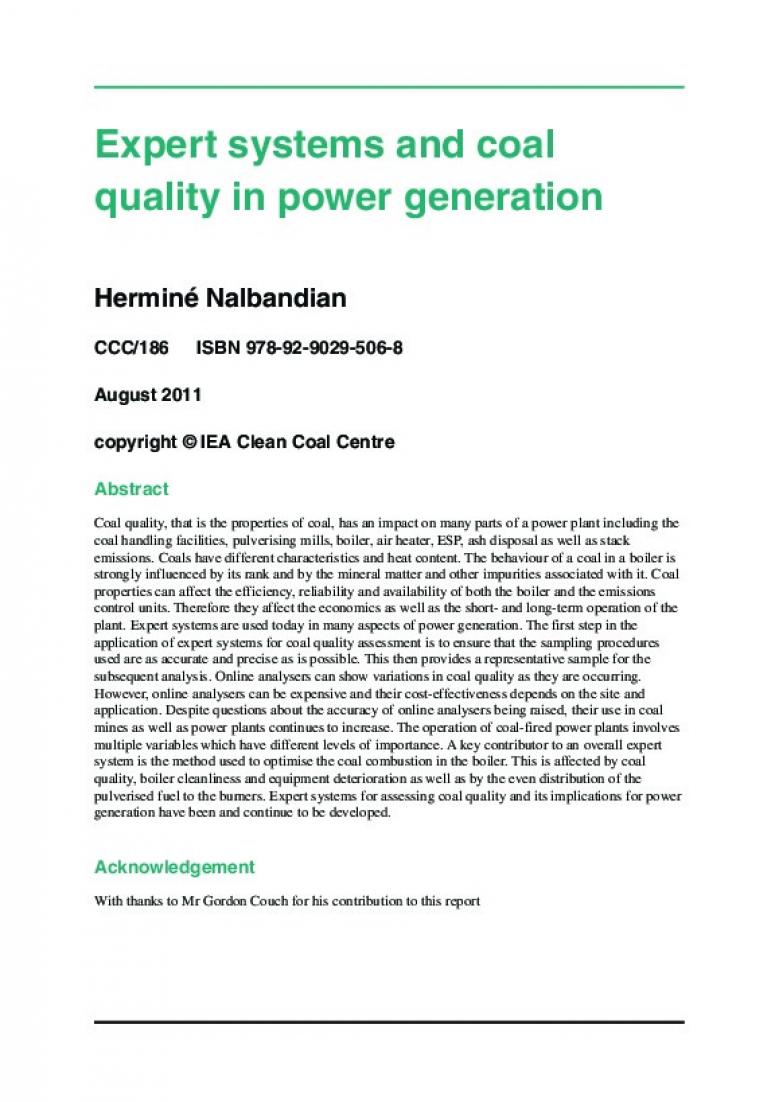CCC/186 ISBN 978-92-9029-506-8
August 2011
copyright © IEA Clean Coal Centre
Abstract
Coal quality, that is the properties of coal, has an impact on many parts of a power plant including the
coal handling facilities, pulverising mills, boiler, air heater, ESP, ash disposal as well as stack
emissions. Coals have different characteristics and heat content. The behaviour of a coal in a boiler is
strongly influenced by its rank and by the mineral matter and other impurities associated with it. Coal
properties can affect the efficiency, reliability and availability of both the boiler and the emissions
control units. Therefore they affect the economics as well as the short- and long-term operation of the
plant. Expert systems are used today in many aspects of power generation. The first step in the
application of expert systems for coal quality assessment is to ensure that the sampling procedures
used are as accurate and precise as is possible. This then provides a representative sample for the
subsequent analysis. Online analysers can show variations in coal quality as they are occurring.
However, online analysers can be expensive and their cost-effectiveness depends on the site and
application. Despite questions about the accuracy of online analysers being raised, their use in coal
mines as well as power plants continues to increase. The operation of coal-fired power plants involves
multiple variables which have different levels of importance. A key contributor to an overall expert
system is the method used to optimise the coal combustion in the boiler. This is affected by coal
quality, boiler cleanliness and equipment deterioration as well as by the even distribution of the
pulverised fuel to the burners. Expert systems for assessing coal quality and its implications for power
generation have been and continue to be developed.
| Attachment | Size |
|---|---|
| 507.2 KB |


